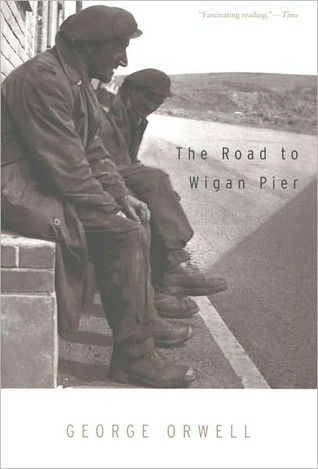More on this book
Community
Kindle Notes & Highlights
On the day when there was a full chamber-pot under the breakfast table I decided to leave. The place was beginning to depress me. It was not only the dirt, the smells and the vile food, but the feeling of stagnant meaningless decay, of having got down into some subterranean place where people go creeping round and round, just like blackbeetles, in an endless muddle of slovened jobs and mean grievances.
The most dreadful thing about people like the Brookers is the way they say the same things over and over again. It gives you the feeling that they are not real people at all, but a kind of ghost for ever rehearsing the same futile rigmarole.
But it is no use saying that people like the Brookers are just disgusting and trying to put them out of mind. For they exist in tens and hundreds of thousands; they are one of the characteristic by-products of the modern world. You cannot disregard them if you accept the civilisation that produced them.
More than anyone else, perhaps, the miner can stand as the type of the manual worker, not only because his work is so exaggeratedly awful, but also because it is so vitally necessary and yet so remote from our experience, so invisible, as it were, that we are capable of forgetting it as we forget the blood in our veins. In a way it is even humiliating to watch coal-miners working. It raises in you a momentary doubt about your own status as an “intellectual” and a superior person generally. For it is brought home to you, at least while you are watching, that it is only because miners sweat
...more
human being is primarily a bag for putting food into; the other functions and faculties may be more godlike, but in point of time they come afterwards. A man dies and is buried, and all his words and actions are forgotten, but the food he has eaten lives after him in the sound or rotten bones of his children. I think it could be plausibly argued that changes of diet are more important than changes of dynasty or even of religion.
Yet it is curious how seldom the all-importance of food is recognised. You see statues everywhere to politicians, poets, bishops, but none to cooks or bacon-curers or market-gardeners.
And the peculiar evil is this, that the less money you have, the less inclined you feel to spend it on wholesome food.
We may find in the long run that tinned food is a deadlier weapon than the machine gun.
For before you can be sure whether you are genuinely in favour of Socialism, you have got to decide whether things at present are tolerable or not tolerable, and you have got to take up a definite attitude on the terribly difficult issue of class.


